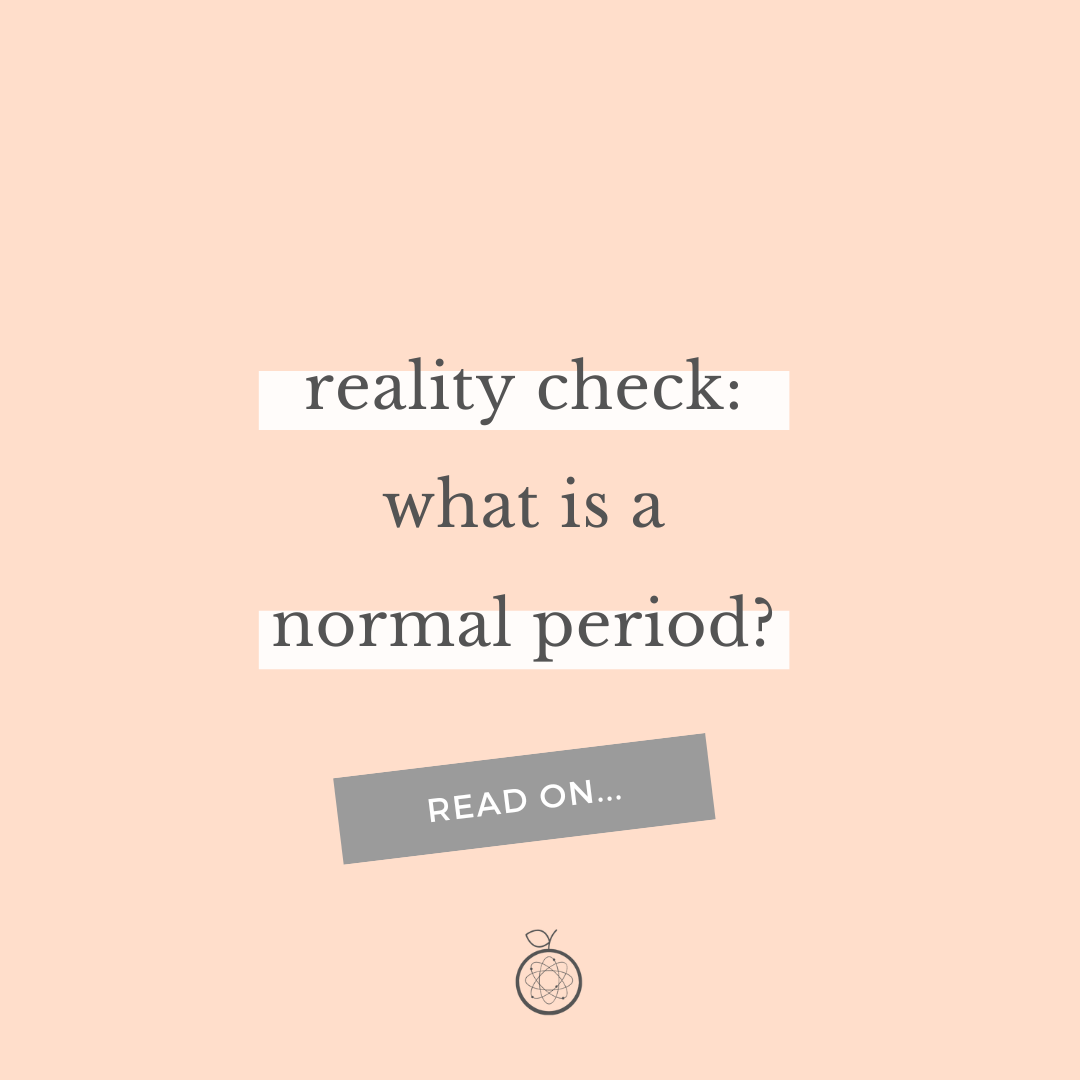Polycystic Ovarian Syndrome (PCOS) affects millions of women worldwide and is one of the most common hormonal disorders among women of reproductive age. Despite its prevalence, many women with PCOS often struggle to receive a proper diagnosis and treatment plan. In this article, we’ll explore the various aspects of PCOS that we see in the online clinic each and every day, including its causes, symptoms, and treatment options.
I remember the very I was diagnosed with PCOS like it was yesterday. I had always thought of myself as a pretty healthy person. At the time I was a personal trainer and was slim, I had regular periods, and was able to conceive without any issues. Sure, I had period pain and acne, but I didn’t think too much of it. So when my doctor told me I had PCOS, I was in total shock. My friends couldn’t get pregnant, had to work twice as hard at the gym to lose less than half the weight and had male pattern hair growth on their faces. This did not match the picture at all. How could I have a hormonal disorder when I didn’t even struggle with my weight, fertility, or absent periods?
But it wasn’t until I was back university that I discovered that even if I didn’t have those symptoms, my anovulatory cycles (not ovulating, and yes you can still bleed monthly but not ovulate!) and high androgen levels were enough to warrant a PCOS diagnosis. It was a wake-up call that PCOS is not always obvious and that getting proper diagnostic testing for your symptoms is crucial, no matter how healthy you feel or how unlikely it is that you fit the picture.
What is PCOS?
PCOS is a hormonal disorder characterized by an imbalance in hormones that can lead to the development of multiple cysts on the ovaries. Women with PCOS may experience menstrual irregularities, anovulation (lack of ovulation), and many can also find difficulty in getting pregnant. They may also have hirsutism (excessive hair growth), male-pattern baldness, acne, and obesity. Furthermore, some women with PCOS may have varying degrees of insulin resistance, which increases their risk of developing Type II diabetes and cardiovascular disease. Whilst this may seem like an extensive list, a women with PCOS may have all of these symptoms and many other have none. It’s most definitely NOT a one size fits all condition.
Causes of PCOS
While the root cause of PCOS is not fully understood, it is believed to be a combination of genetic and environmental factors. Insulin resistance and the resulting increase in insulin levels may play a role in the development of PCOS. High levels of insulin can lead to an increase in androgen production, which can cause symptoms like hirsutism and acne. Additionally, stress, inflammation, and exposure to endocrine-disrupting chemicals can also contribute to the development of PCOS.
Diagnosis of PCOS
The diagnosis of PCOS is usually made based on clinical symptoms, such as menstrual irregularities and anovulation, along with laboratory based pathology tests that show high levels of androgens. However, not all women with PCOS have cysts on their ovaries, and not all women with ovarian cysts have PCOS. This makes the diagnosis challenging and emphasizes the importance of seeking medical advice from a qualified healthcare professional. Women with PCOS are also at higher risk of developing other health conditions like sleep apnea, depression, anxiety, and endometrial cancer. Many women we see in clinic are told that they have PCOS because they have had an ultrasound of their uterus and ovaries and have been told they have a number of cysts on their ovaries, and this does not equate the diagnosis of PCOS.
Cysts On An Ultrasound?
Small cysts on the ovaries are common, and healthy! They usually do not cause any symptoms. These are all part of a functioning reproductive system and a normal part of the menstrual cycle. Every month, the ovaries develop a follicle, which is a small fluid-filled sac that contains an egg. The follicle grows until it releases the egg during ovulation. After ovulation, the follicle may continue to grow and fill with fluid, forming a functional cyst. The ovary will stimulate the growth of many follicles and only the best one will become the ovum (or egg) to be released that month.
In most cases, these cysts are small and will be reabsorbed by the ovary and disappear within a few weeks. They are usually not visible and are only detected by imaging tests, such as ultrasound, that are done for other reasons. Depending on what stage of your menstrual cycle you are at when you have an ultrasound, hence why there is no reason to stress yourself out when multiple cysts are observed. IT IS TOTALLY NORMAL!
Larger cysts or cysts that do not go away on their own are often the one’s that can cause symptoms and may require medical treatment.
It is important to note that having functional cysts on the ovaries does not necessarily mean that someone has PCOS. PCOS is a hormonal disorder that is characterized by a combination of symptoms, including irregular periods, high levels of male hormones, and multiple cysts on the ovaries. A diagnosis of PCOS requires the presence of other symptoms in addition to the cysts.
Treatment of PCOS
The treatment of PCOS varies depending on the individual’s symptoms and goals. Lifestyle modifications such as weight loss and regular exercise are often recommended for women with PCOS who are overweight or obese. These changes can improve insulin resistance, reduce inflammation, and improve overall health. It you find yourself within this picture of health, it is strongly advised to book in a consult to regulate your menstrual cycles, reduce insulin resistance, and manage other symptoms like acne and hirsutism prior to being prescribed medications to simply turn off your complex reproductive hormonal system by taking an oral contraceptive pill. If this resonates with you, check out our article on ‘The Dangers of the Band-Aid Approach on Your Hormones’.
PCOS and Fertility
One of the primary concerns for women with PCOS is their ability to conceive. While it is true that SOME women with PCOS may experience difficulty conceiving and may need fertility treatments, such as ovulation induction, in vitro fertilization (IVF), or other assisted reproductive technologies (ART), and while PCOS is often associated with infertility, not all women with PCOS struggle to conceive. Women with PCOS who ovulate regularly may still have a chance of getting pregnant. However, women with PCOS who do have irregular menstrual cycles, or don’t ovulate, may need to seek fertility treatment, such as ovulation induction or in vitro fertilization (IVF), to conceive.
Additionally, there is an abundance of nutritional and lifestyle modifications, such as correcting nutrient deficiencies and balancing your hormones, particularly blood sugar levels, along with weight loss (if required) and exercise, that can drastically improve fertility outcomes.
PCOS Is Not Forever
PCOS is a complex hormonal disorder that affects many women of reproductive age. Its symptoms can vary widely from woman to woman, and it is important to seek medical advice from a qualified healthcare professional for proper diagnosis and treatment. A combination of lifestyle modifications and medications can help manage the symptoms of PCOS and improve overall health and wellbeing. With proper diagnosis and treatment, women with PCOS can lead healthy and fulfilling lives.
While there is no “cure” per se for PCOS, and management of the condition requires ongoing attention and care. With regular monitoring and treatment with your highly qualified healthcare professional, you can help to manage symptoms and prevent complications. But with the right treatment and lifestyle modifications, women with PCOS can lead happy and healthy lives and we have witnessed many a total reversal of all pathologies that confirmed their PCOS diagnosis, with great support and dedication you can achieve amazing results.
Ready to Go?
To learn more about PCOS, your hormones and how you can connect your own dots, The Flow Lab is an online course that provides a comprehensive, evidence-based approach to women’s health and wellness. Led by experienced nutritionist and women’s health expert, Megyn Hayes, the course is designed to help women optimize their nutrition and lifestyle to support hormonal balance, menstrual cycle regulation, and overall health and vitality.
With a focus on practical tools and strategies, The Flow Lab empowers women to take charge of their health and wellness, and provides a supportive community of like-minded individuals to help stay accountable and motivated. Whether you’re struggling with PCOS, hormonal imbalances, menstrual irregularities, or simply want to optimize your health and wellbeing, The Flow Lab is a powerful tool to help you reach your goals and live your best life.







0 Comments